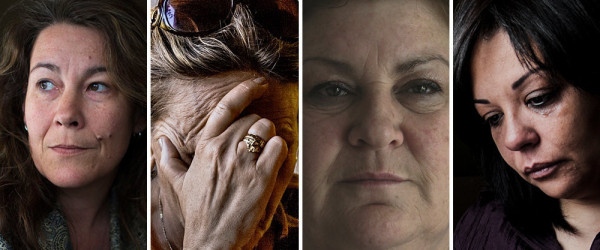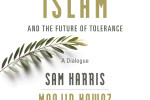Julia Joffe at Huffington Post recently interviewed several “Mothers of ISIS recruits”, whose “children abandoned them to join the worst terrorist organization on earth.” The interviews are heartbreaking and as several of the commenters note, the piece is difficult to read though it is beautifully written (if that word can even be applied to this context). It is difficult because you can’t help but feel your heart constrict with empathy for the anguish of the mothers, some of whom do not even know whether their children are alive or dead.
The women featured are Christianne Boudreau, Karolina Dam, Torill, and Saliha Ben Ali. Joffe notes:
“These women are just four of thousands who have lost a child to the Islamic State, also known as ISIS. Since the Syrian civil war began four years ago, some 20,000 foreign nationals have made their way to Syria and Iraq to fight for various radical Islamist factions. Over 3,000 are from Western countries.”
Clearly, Joffe is focused on the mothers of recruits from Western countries – and here, three out of four of them are mothers of European converts. I did not see much to comment on here until I reached this sentence: “Saliha Ben Ali, the modern, European-born daughter of Moroccan and Tunisian immigrants.”
Why is this necessary, I found myself thinking? Joffe did not feel the need to clarify that the others are “modern.” What does it mean to be modern? Is it a synonym for moderate here?
I’m thinking about this in contrast to the coverage of other parents of ISIS recruits, who are not bequeathed that “modern” adjective. After Vice spoke to Amira Abase’s parents, for example, the reactions were often less than sympathetic. People asked what the parents should have done to stop this, and why they did not do more, and whether they should be placed under surveillance. This kind of suspicion was there before it was established that “Amira’s father, Hussen Abase, had been filmed attending an Islamist rally in 2012 organized by a notorious hate preacher, Anjem Choudary.” In hindsight, the criticism of the parents, at least of the father, is justified, some might say. But could Amira Abase’s mother ever have been described in the same sympathetically anguished prose as the mothers interviewed in Joffe’s piece?
I don’t know what to make of stories like this, for example, where we are told that “A judge has ordered that a 16-year-old girl must be removed from her “deceitful parents” after she was “fully radicalised” in a home filled with Islamic State propaganda.” Later on however, we learn that “The teenager was made a ward of the court and it appeared at the time, that her parents were cooperating with authorities, after their [sic] thanked police for preventing their daughter from travelling to Turkey.”
If the parents are both “deceitful” and thankful to the authorities, are we supposed to see them as “good” or “bad” Muslims? Those paradigms, it seems, are the only ones available when the family of the ISIS wannabes are not self-evidently “modern” i.e secular. The widening of suspicion from recruits to their families may be justified in some cases. Haras Rafiq, the managing director of the Quilliam Foundation, an anti-extremism research centre, argues that “Some parents create the atmosphere for their children.” But crucially, some parents don’t – and in fact in most cases it seems, joining ISIS is a rebellion against family and an overturning of parental authority.
I’ve been thinking about suspicion recently, with the controversy over recently released “last British resident to have been held in Guantanamo” Shaker Amer, and the degree of interpretative analysis that people go into as they share whether or not they think he was a “bad man.” People are comfortable speculating that someone who speaks like this, or looks like this, or has this habit, must be good (thought of his children), or must be bad (has a niqabi wife).
This struck me again with the ongoing campaign by Humans of New York, Friends of Aya, regarding the rejection of a refugee application by a twenty year old Iraqi woman named Aya. Reading the comments, every so often you encounter people who sagely suggest that there “must be a reason” for the rejection of the family’s application, and that this reason must be a security issue. Now that may very well be the case. But it stands in sharp contrast to the unadulterated outpouring of support for other refugees featured on the page – other refugees whose applications were accepted, because as Brandon Stranton points out, they either have someone with a severe physical or mental disability, or, as in the case of this scientist, have something to offer or are highly educated.
I was amused to see that in response to the suspicious, some of the commenters on Aya’s stories note she has a dog – therefore she must, it is suggested, not be “one of those” Muslims. Maybe to ward off suspicion we should all go visit the local shelter and adopt a puppy?




